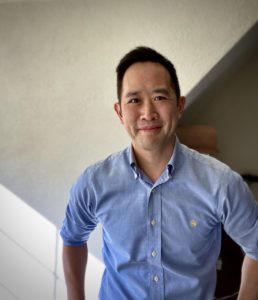Collected Research by Asian American and Pacific Islander Psychological Scientists

May is Asian American and Pacific Islander Heritage Month, an annual celebration that recognizes the contributions in the United States of people of Asian and Pacific Islander (AAPI) descent. As of 2019, the AAPI population was an estimated 22.9 million, according to the U.S. Census. In recognition of the growing body of research by AAPI psychological scientists, we have assembled this collection of articles by four AAPI researchers published in APS journals and other journals in recent years.

APS Fellow Serena Chen is the first Asian American chair of psychology at the University of California, Berkeley. A recipient of the 2022 APS Mentor Award, her research interests include self and identity, self-compassion, close relationships/relationship well-being, and social hierarchy.
When the Boss Feels Inadequate: Power, Incompetence, and Aggression
Psychological Science, 2009
When and why do power holders seek to harm other people? In this study, Chen and coauthor Nathanael J. Fast observed that feelings of power can make leaders more sensitive to a threatened ego. In these scenarios, leaders may end up perceiving normal, neutral interactions as threatening or rude, leading them to lash out aggressively. “A startling 37% of American workers—roughly 54 million people—have been bullied at work, primarily having been sabotaged, yelled at, or belittled by their bosses,” the researchers wrote. “This statistic resonates with research showing a link between social power and aggression.”
Read more about Chen and Fast’s study in this Minds at Work article.
Facial-Feature Resemblance Elicits the Transference Effect
Psychological Science, 2010
Transference occurs when a person redirects some of their feelings or desires for another person to an entirely different person. In this article, Chen and coauthor APS Fellow Michael W. Kraus integrate research on face perception and transference, hypothesizing that transference can also occur when a target’s facial features resemble those of a perceiver’s significant other. Their research found that manipulating the facial features of an upcoming interaction partner to resemble those of a participant’s significant other did indeed lead the participant to make inferences about and evaluations of the interaction partner that were consistent with their significant other. “Moreover, participants undergoing transference experienced shifts in their self-concept, so that they described themselves more like the person they are when with the relevant significant other.”

Stephen Chen is an associate professor of psychology at Wellesley College. His research is focused on the ways in which culture and family processes influence our mental health and development throughout our lives, primarily in underrepresented and at-risk populations.
Parents’ Expression and Discussion of Emotion in the Multilingual Family: Does Language Matter?
Perspectives on Psychological Science, 2012
Amid an increase in multilingual families in the United States, researchers are beginning to ask whether the language parents use to discuss emotions affects children’s emotional development. In this article, Chen and coauthors Morgan Kennedy and Qing Zhou review research examining how parents’ emotion-related language affects children’s emotional understanding, regulation, and experience. The authors also discuss the relationship between, and the implications of, emotional language choice in multilingual families.
See Chen’s symposium at the 2022 APS Convention in Chicago: “Bilingualism Shapes Emotional Processes: Integrating Perspectives Across Psychological Science.”

APS Fellow Angela Duckworth is a professor of psychology at the University of Pennsylvania; the CEO and founder of Character Lab, a nonprofit that works to help children thrive; and a 2013 recipient of a MacArthur Fellowship Award. Her research, which focuses primarily on grit and self-control, aims to determine how the two traits impact individual success.
Beyond Willpower: Strategies for Reducing Failures of Self-Control
Psychological Science in the Public Interest, 2019
Nearly everyone at one time or another has engaged in overeating, excessive spending, procrastinating, or other self-defeating behaviors. These failures of self-control can impede educational achievement, retirement savings, health, and well-being. Moreover, these habits persist even when people recognize them and resolve to behave differently in the future. In this article, Duckworth and coauthors Katherine L. Milkman and David Laibson examine research on different strategies that prevent self-control failures and propose a theoretical framework to organize these strategies. They also summarize policy-relevant research and interventions, distinguishing between strategies that target particular situations and strategies that target one’s mental representations of the situation and environment. The researchers argue that optimal strategies to decrease failures of self-control depend not only on their likelihood of success but also on how easy they are to implement; therefore, different behaviors and situations may require different strategies. Duckworth and colleagues also highlight that, despite a large body of research on self-control, there is a need for a cumulative and applied science of self-control that incorporates insights from psychological science and economics.
Using Psychological Science to Help Children Thrive
Perspectives on Psychological Science, 2019
Angela Duckworth examines her path from schoolteacher to researcher and public figure in helping children to thrive and adults to persist and succeed in the face of challenges. (She also discusses her experiences, research, and theory on “grit” in her 2013 TED Talk, “Grit: The Power of Passion and Perseverance.”)

Jackson G. Lu is the Mitsui Career Development Professor and an associate professor of work and organization studies at the MIT Sloan School of Management. His team is among the first to systematically research the “Bamboo Ceiling,” a phenomenon whereby East Asians are disproportionately underrepresented in leadership positions in the United States despite being largely well-educated and prosperous. Lu’s research suggests that a Bamboo Ceiling also exists in starting salaries and academic performance. A 2021 APS Observer article and APS expert panel on the psychological science of racism also explored this phenomenon.
Proceedings of the National Academy of Sciences, 2020
Lu and colleagues investigated the scope and mechanisms of the Bamboo Ceiling, comparing the two largest Asian subgroups in the United States: East Asians and South Asians. Across nine studies, they found that East Asians were less likely than South Asians and Whites to attain leadership positions. The leadership-attainment disadvantage of East Asians was consistently explained by cultural differences in assertiveness, but not by prejudice or motivation. To leverage diverse leadership talent, the researchers wrote, organizations should understand the differences among different cultural groups and diversify leadership prototypes.
Proceedings of the National Academy of Sciences, 2022
In the United States, Asians are commonly assumed to excel across all educational stages. Lu and colleagues challenge this assumption by revealing the underperformance of ethnic East Asians in U.S. law schools and business schools, which can be consequential gateways to societal influence. The authors propose that East Asians—but not South Asians—underperform academically because their low verbal assertiveness is culturally incongruent with the assertive class participation prized by U.S. law schools and business schools. Across six large studies, East Asians had lower grades in law and business schools than South Asians and Whites despite performing well on admission tests. This underperformance was explained by lower assertiveness rather than lower academic motivation, even after controlling for factors such as birth country and English proficiency. Moreover, East Asians’ underperformance was more pronounced in social courses emphasizing class participation (e.g., leadership, strategy) than in quantitative courses (e.g., accounting, finance). Notably, the researchers found that East Asians’ underperformance was mitigated in online classes conducted via Zoom, a communication medium characterized by lower social presence than in-person classes. By revealing a Bamboo Ceiling in the classroom, this research highlights the importance of fostering an inclusive classroom for students from diverse cultural backgrounds.
Related Research
-

Cultural Diversity
How do people respond to increasing cultural diversity in their communities, cities, and countries? Researchers investigate.
-

Lessons from the Bamboo Ceiling
Cultural mismatch, in addition to prejudice, often stands in the way of leadership success for East Asian professionals.
-

APS Commitment to Diversity, Equity, & Inclusion
Learn about APS’s commitment to promoting diversity, equity, and inclusion in all areas of our leadership, membership, activities, staff, and field.
Feedback on this article? Email [email protected] or comment below.





APS regularly opens certain online articles for discussion on our website. Effective February 2021, you must be a logged-in APS member to post comments. By posting a comment, you agree to our Community Guidelines and the display of your profile information, including your name and affiliation. Any opinions, findings, conclusions, or recommendations present in article comments are those of the writers and do not necessarily reflect the views of APS or the article’s author. For more information, please see our Community Guidelines.
Please login with your APS account to comment.